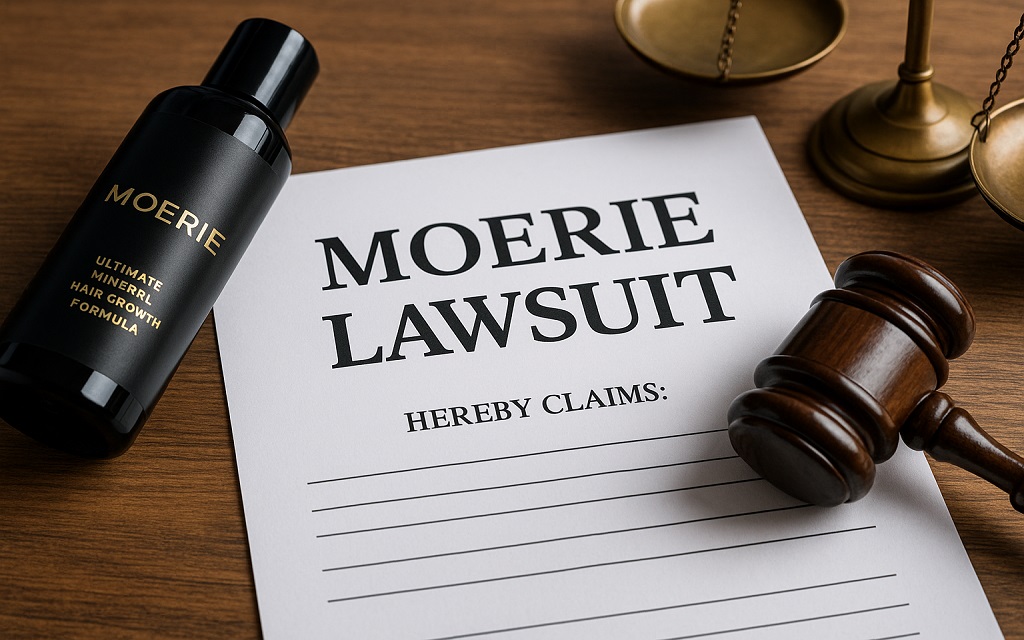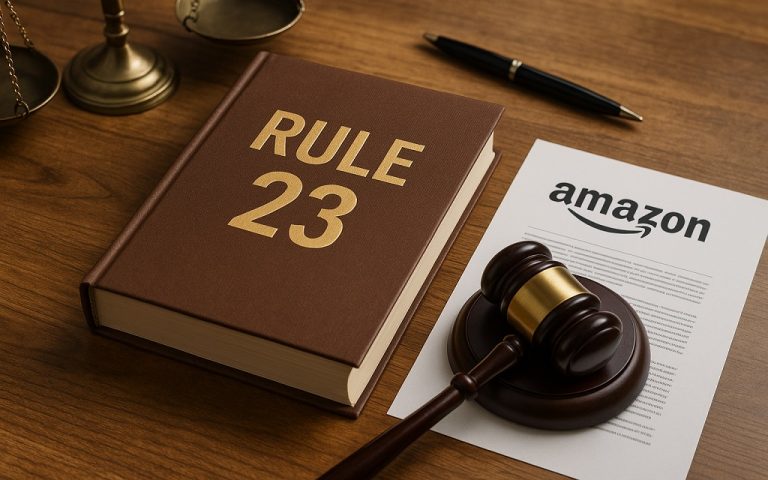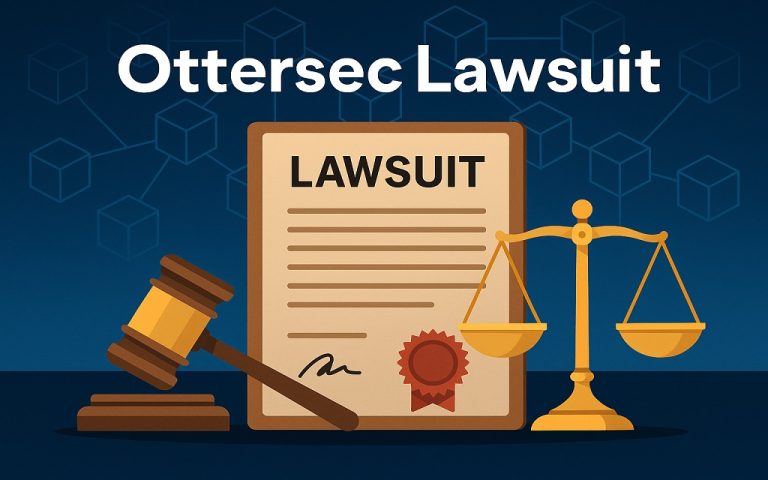The Moerie Lawsuit has raised serious concerns among users who trusted the brand for hair growth and scalp health. Once promoted as a luxury hair care solution, Moerie now faces legal backlash from customers who claim the products caused hair loss, allergic reactions, and financial harm. The Moerie Lawsuit includes allegations of deceptive marketing, unsafe ingredients, and hidden subscription billing.
If you or someone you know used Moerie’s shampoo, serum, or supplements, this lawsuit could affect your rights. In this guide, we explain the facts behind the Moerie Lawsuit, review real customer experiences, and show you what legal actions are underway—and how you can protect yourself.
What Is the Moerie Lawsuit About?
You may have heard of Moerie as a premium hair growth brand. It sells shampoos, serums, and supplements. It promises thicker, longer hair using natural, vegan ingredients. Moerie also claims its formula includes 77 minerals, 18 amino acids, and biotin. Its ads suggest fast results.
But now, users say the products caused more harm than good.
The Moerie lawsuit began after a flood of consumer complaints. People reported scalp irritation, allergic reactions, and even bald patches. Others accused the company of locking them into auto-renewing subscriptions. Many said refunds were impossible. Several women claimed they experienced worse hair loss after using Moerie.
The lawsuit raises serious questions. Did Moerie mislead customers? Also, did it hide known risks? Did it violate laws on fair billing or product safety? You should know what’s happening before you use or keep buying these products.
This article explains everything in plain terms. You’ll see real customer experiences, legal issues, and expert insights. If you or someone you know used Moerie, this matters.
What Claims Does Moerie Make About Its Products?
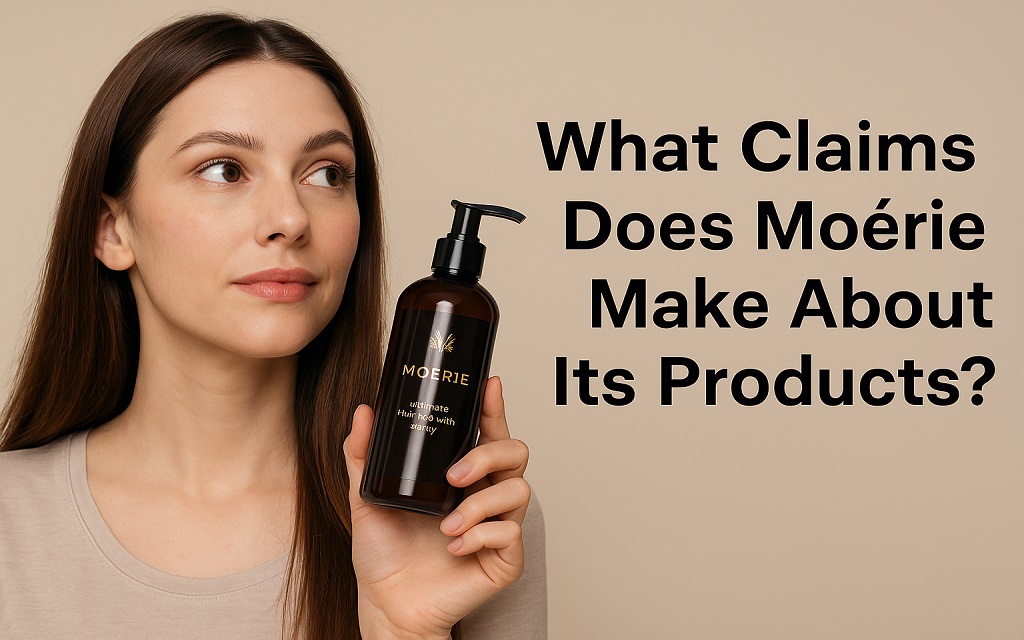
Moerie calls itself a luxury hair care solution. Its site shows glowing models and words like “pure,” “science-backed,” and “root-deep.” It claims to deliver visible results in weeks.
Here are its top claims:
- Restores hair growth using fulvic acid
- Adds volume through biotin and caffeine
- Rebuilds hair strands with keratin and vitamins
- Includes 125 active ingredients from natural sources
- Works for all hair types
- No parabens, no sulfates, no animal testing
Each bottle costs over $30. The company encourages you to subscribe. Once you do, you receive recurring shipments monthly. Some customers didn’t realize this at first. Many felt trapped in a cycle they couldn’t stop.
Moerie also says dermatologists support its formula. But it provides no published clinical studies. It does not show FDA approval or independent lab tests. The company operates online, with slick marketing and bold promises.
Consumers expected strong results. Instead, some faced rashes, swelling, and sudden shedding. This gap between claims and real results triggered public backlash.
What Are the Main Allegations in the Moerie Lawsuit?
You should know the lawsuit does not just accuse Moerie of weak results. It claims real damage.
Here are the key points raised in complaints:
- Hair Loss: Many users say their hair thinned badly. Some found bald spots after weeks of use.
- Allergic Reactions: Customers reported red, itchy, painful scalps. A few said they saw blisters.
- Product Safety: No warnings appeared on the packaging. People say they were blindsided.
- Hidden Subscriptions: The checkout page showed a one-time price. But behind it was a subscription.
- Refund Problems: Canceling the subscription proved hard. Getting a refund felt impossible.
- No Clinical Proof: Moerie showed no test results or safety data. Users say they were misled.
- Deceptive Advertising: The lawsuit alleges that Moerie utilized influencer videos, false testimonials, and misleading photographs.
The lead complaint comes from a woman in California. She says Moerie caused her to lose 40% of her hair. She also claims the refund process was a dead end. Her lawyers now represent others facing the same issues.
If a court agrees with her, this could become a class action. That would include many more users. At this point, no official settlement exists. But lawyers are still collecting claims and evidence.
What Legal Action Has Been Taken Against Moerie?

You should understand that lawsuits don’t start overnight. They begin after complaints build up. In Moerie’s lawsuit, legal action started in early 2025.
The first plaintiff, Sharon Allen of California, filed a lawsuit in state court. She claimed Moerie’s product caused rapid hair loss. She included photos, receipts, and doctor reports. Her lawyers argued that Moerie broke multiple consumer laws.
Other women joined the complaint within weeks. Some were from Texas, Florida, and New York. Each said the product harmed their scalp. They also said the subscription model trapped them in recurring charges.
Here are the central legal claims in the suit:
- False Advertising under California Business & Professions Code § 17500
- Violation of Consumer Legal Remedies Act (CLRA § 1770)
- Unfair Competition under California B&P Code § 17200
- Breach of Implied Warranty of Merchantability
- Failure to Warn under product liability law
- Unjust Enrichment by misleading the public
The lawsuit also asks the court to:
- Stop Moerie from selling these products
- Refund all affected customers
- Pay damages for physical and emotional harm
At this point, the case remains pending. No final judgment or settlement has been reached. But lawyers continue to collect user testimonies. If the court approves, it may turn into a certified class action lawsuit.
That step would change everything. It would give thousands of users the right to join. It would also increase Moerie’s legal risk. Courts handle class actions differently. They attract stronger media and regulatory attention.
If you used Moerie and experienced side effects, you may be eligible for compensation. You should speak to a lawyer or join the information list. Many legal teams are closely monitoring this case.
Are Moerie’s Ingredients Safe for All Hair Types?
Moerie says its formula includes over 125 active ingredients. It promotes “science-backed,” “natural,” and “vegan” as key features. But users now question what’s really inside.
Let’s examine the most talked-about ingredients.
Fulvic Acid
Moerie calls this its star ingredient. It claims fulvic acid boosts hair growth by delivering minerals to the scalp. Some studies show it helps nutrient absorption. But few tests examine its effects on human hair. Dermatologists warn it may irritate sensitive skin. There is no clear evidence from an FDA review to support its safety for daily topical use.
Biotin
Biotin is a known hair supplement. It helps in some cases of deficiency. But too much biotin may cause skin reactions. It can also interfere with lab results. Moerie does not list exact amounts on the label.
Keratin
Keratin makes up hair strands. In theory, adding it sounds good. But applying keratin to the scalp doesn’t always help. Some users say it clogs their follicles. In others, it led to dryness and breakage. Again, Moerie does not reveal how much keratin it uses.
Caffeine
Caffeine may stimulate hair follicles. It appears in many growth shampoos. But results vary. Too much caffeine on the skin may trigger rashes or irritation. Customers say Moerie did not warn about this risk.
Essential Oils and Botanicals
Moerie includes rosemary, coconut, nettle, and argan oils. These may help some people. But others show allergic reactions. The problem grows if the brand fails to provide clear allergy guidance.
Many users now report developing itching, redness, and blisters. A few saw swollen scalps or burning pain. Most of these reactions started within 3–7 days of use.
Moerie does not publish safety tests. It does not display third-party lab data. Its website lacks detailed side effect warnings. That’s why the lawsuit includes failure to warn as a core claim.
You should know that cosmetic companies are not always required to test products before release. But if they make strong health claims, they face more scrutiny. Courts may ask Moerie to prove its safety through expert evidence.
Does the Government Regulate Moerie and Similar Hair Products?
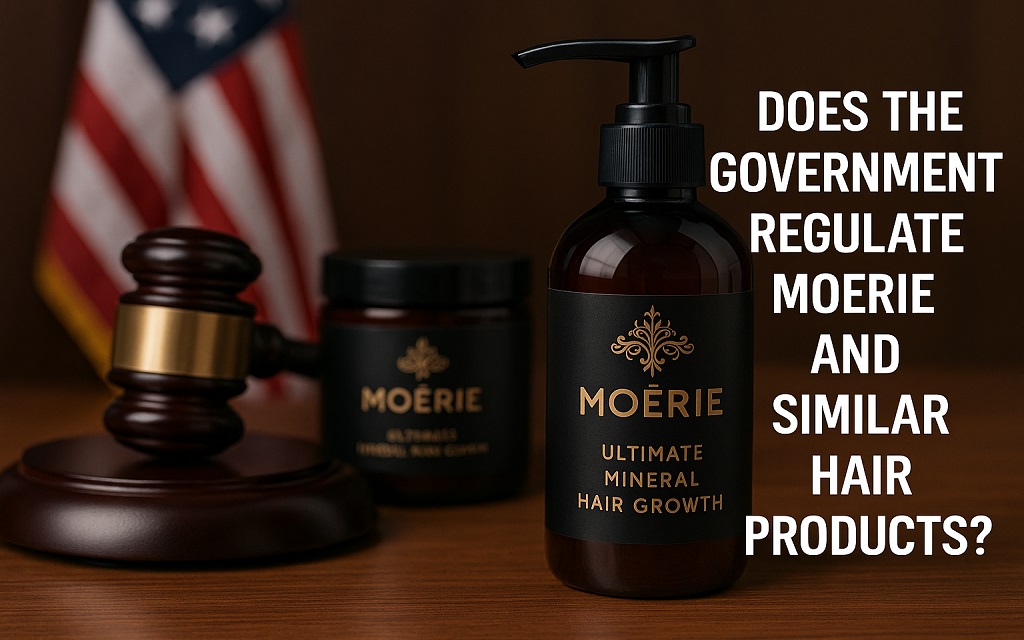
Yes — but only up to a point. You should know that the U.S. government regulates cosmetic products. But it does not approve them before they hit the market.
The FDA (Food and Drug Administration) oversees cosmetics under the Federal Food, Drug, and Cosmetic Act. This law says products must be safe. They cannot contain harmful substances. Labels must be truthful.
However, the FDA does not pre-approve shampoos or serums. Brands like Moerie can launch without submitting safety tests. The FDA only investigates after complaints or harm reports.
Here’s what Moerie must follow under FDA rules:
- Use approved color additives
- List all ingredients
- Avoid banned substances
- Use honest labeling
- Avoid misleading claims that sound like medical promises
If Moerie says its shampoo “cures hair loss,” that’s a problem. It crosses into drug territory. That may trigger FDA action.
So far, the FDA has not issued a warning letter against Moerie. But if user reports grow, that could change. The agency tracks injury reports through its Voluntary Cosmetic Registration Program (VCRP). It also monitors recalls and consumer alerts.
What About Subscriptions?
That falls under the FTC (Federal Trade Commission). The FTC enforces rules around billing and marketing.
Moerie’s lawsuit alleges that it employed dark patterns. That means deceptive web design. For example:
- Pre-checked boxes
- Hidden fine print
- Confusing cancel buttons
- Countdown timers are pressuring users
The FTC Restore Online Shoppers’ Confidence Act (ROSCA) requires:
- Clear consent for auto-renewals
- Easy cancellation
- Accurate disclosure of terms
- If Moerie violated these rules, the FTC may step in. It has fined companies before for tricking users into subscriptions.
The FTC also looks at Section 5 of the FTC Act. That section bans unfair or deceptive acts. Ads, influencer promotions, and false reviews all fall under this.
Moerie may face legal heat if its influencers failed to disclose paid promotions. Or if its testimonials were fake.
What Legal Defense Might Moerie Use in Court?
You should understand that lawsuits include two sides. Moerie has not admitted wrongdoing. It has not made public statements since the case began. However, legal experts suggest that it may use the following arguments.
1. Results May Vary
Moerie may say results depend on genetics. It could be argued that not all users respond the same way. That would make claims of hair loss hard to link directly to the product.
2. Proper Use Was Required
Moerie could argue that users did not follow instructions. If someone used too much, too often, or mixed it with other products, the company may deny fault.
3. Ingredient List Was Public
Moerie may point to its online product pages. If the complete list were visible, the company might claim users assumed the risk. This could weaken “failure to warn” arguments.
4. No Proven Causation
Moerie may say the harm was unrelated. It could be argued that the hair loss came from other health issues, stress, or hormonal changes.
5. Refunds Were Offered
Moerie might show that refunds were available — if requested correctly. It may indicate that the customer ignored email instructions or used a fake name.
6. Not a Class Action Yet
Moerie’s lawyers could argue that the injuries differ. If one person saw hair loss and another had a rash, it may oppose class certification. That would slow the case down.
Even if the lawsuit goes to court, the burden of proof falls on the plaintiffs. They must show:
- The product was defective
- It directly caused harm
- Moerie knew or should have known the risk
That’s not always easy.
But public pressure matters. Lawsuits also affect brand trust. If more users speak out, regulators and lawyers may act faster.
What Are Your Rights as a Moerie Customer?

You have rights — even if you never joined the lawsuit.
Here’s what you can do:
1. Cancel the Subscription
You should check your email or account dashboard. Look for a cancellation link. If that fails, call your credit card company. They may stop future charges under the Fair Credit Billing Act.
2. Request a Refund
Send a written refund request. Include order numbers, photos, and dates. Save all replies. If they deny your claim, you can dispute it with your bank.
3. Report the Harm
File a report with the FDA MedWatch program. You can also contact the FTC Complaint Assistant. These agencies track injury patterns.
4. Join a Class Action
If the case becomes class certified, you may be eligible. That means you could receive a payout if the case settles. Lawyers will post updates on their sites.
5. File a Private Claim
You can also file your own small claims case. If you lost money or faced medical bills, state courts allow personal suits. You should gather receipts, emails, and doctor notes.
6. Check State Laws
Some states offer better protection than others. For example:
- California has strong consumer refund laws
- New York tracks unfair business practices under GBL § 349
- Texas lets users sue under the DTPA (Deceptive Trade Practices Act)
You should talk to a local attorney if your damage was severe.
How Can You Protect Yourself From Harmful Hair Products?
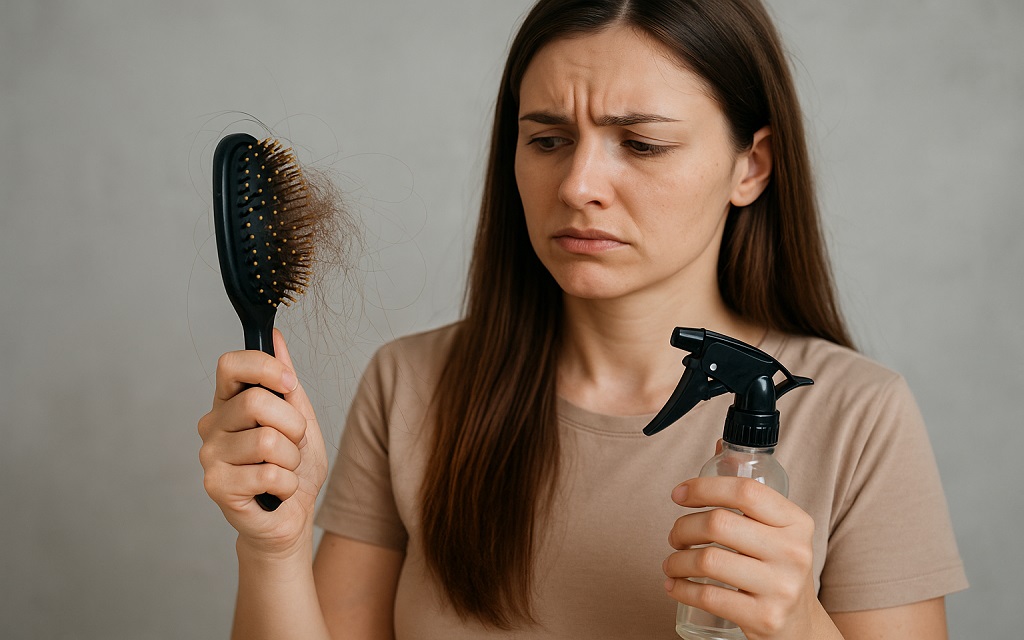
You should not wait for a lawsuit to stay safe. You can take steps now to avoid risky hair treatments and bad business practices.
1. Read the Full Ingredient List
Look beyond the marketing claims. Many “natural” products still include harsh chemicals. Check for allergens. Compare against allergy databases or consult your dermatologist.
You should also look for the order of ingredients. Brands often list key ingredients at the end. That means they’re used in low amounts.
2. Avoid Hidden Subscriptions
If a site offers a free trial or a deep discount, check the terms carefully. Scroll down. Look for auto-renewal notices—Uncheck pre-selected boxes. Take screenshots during checkout.
Read the refund policy. Look for restocking fees, time limits, and return procedures.
3. Do a Patch Test First
Apply a small amount of the product to your arm or neck. Wait 24–48 hours. If you see redness, bumps, or itching, don’t use it.
This test helps detect allergic reactions early. It also shows how your skin reacts to essential oils or acids.
4. Watch for Fake Reviews
Be careful with reviews that sound too perfect. Some sites pay for fake five-star posts. Look for detailed reviews. Verified purchases matter more. Check third-party sites like Trustpilot or BBB.
5. Know Your Refund Rights
Federal law gives you billing protection. If a company overcharges you or misleads you, your bank may reverse the charge. Keep proof.
Each state has different consumer protection rules. Use that to your advantage. Search your state attorney general’s office for tools and complaint forms.
6. Report Unsafe Products
If a product harmed you, don’t stay silent. Your complaint can trigger a recall or investigation. Contact:
- FDA MedWatch: fda.gov/medwatch
- FTC Complaint Assistant: reportfraud.ftc.gov
- Better Business Bureau: bbb.org/complain
Include photos, receipts, and precise details. These agencies act when patterns emerge.
Final Takeaways on the Moerie Lawsuit
You should stay informed about the Moerie lawsuit. It highlights significant risks in the hair care market.
Moerie made bold promises. Users expected thicker, healthier hair. Instead, some say they lost hair, suffered scalp damage, and got locked into shady billing traps.
The lawsuit accuses Moerie of:
- False advertising
- Product safety failures
- Auto-renewal violations
- Refusing refunds
- Ignoring complaints
The case may turn into a class action. That would involve many more victims and larger legal exposure.
Moerie may fight back. It may say users misused the product or failed to cancel on time. But courts will decide based on evidence.
If you used Moerie and experienced harm, speak up. Join legal updates. Report your experience. Protect others.
FAQs
What happens when you stop using Moerie?
Hair results may reverse after stopping Moerie. Some users report increased shedding or a return to their previous hair condition.
Are Moerie products safe to use?
Although Moerie maintains that its products are safe, some customers have reported allergic reactions, hair loss, and scalp discomfort; these complaints are currently being investigated in a lawsuit.
Is a hair loss shampoo lawsuit pending?
Yes, there are allegations in the Moerie Lawsuit that the company’s hair loss shampoo led to hair loss, damaged the scalp, and employed dishonest billing practices.
Who serves as Moerie’s CEO?
Moerie does not currently have a named CEO listed on its official platforms as of 2025, and its leadership is mainly unknown.
How long does it take for Moérie to start showing results?
Moerie says users may see results in 30 days, but experiences vary widely, and some report no improvement or even worsening of their hair loss.
Does Moérie make your hair thicker?
Moerie claims to thicken hair with minerals and fulvic acid, but scientific proof is limited, and customer results are inconsistent.
Conclusion
The Moerie lawsuit is more than a brand scandal. It demonstrates how real-world results might conflict with beauty marketing. A firm must behave properly when individuals entrust it with their health.
Moerie’s case remains open. However, if the accusations turn out to be true, it might face huge fines and a drop in trust. Consumers ought to have clear rights to safety, transparency, and reimbursement.
You should stay alert. Read labels. Check claims. Avoid unnoticed billing traps. Speak up if anything doesn’t feel right. Need legal help or want to report a Moerie issue? Visit the FTC or FDA websites. Or contact a consumer protection attorney near you.
Disclaimer: This article provides a general overview of the Moerie lawsuit, based on publicly available information, and is intended for informational purposes only. It is not legal advice.
Musarat Bano is a content writer for JudicialOcean.com who covers lawsuits, legal news, and general legal topics. Her work focuses on research-based, informational content developed from publicly available sources and is intended to support public awareness. She does not provide legal advice or professional legal services.

